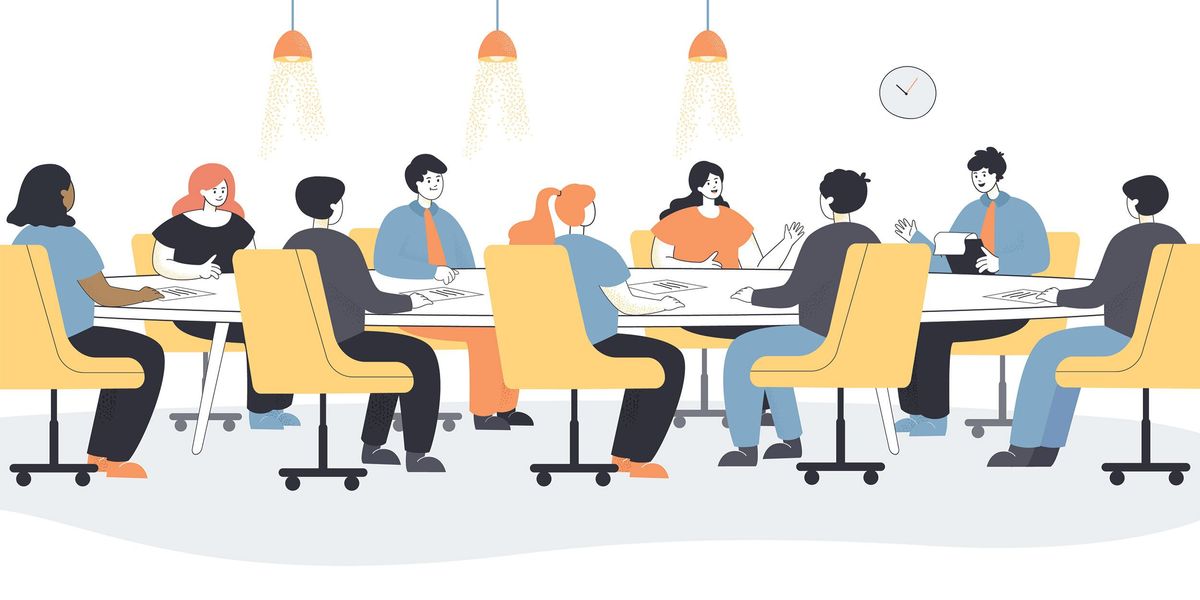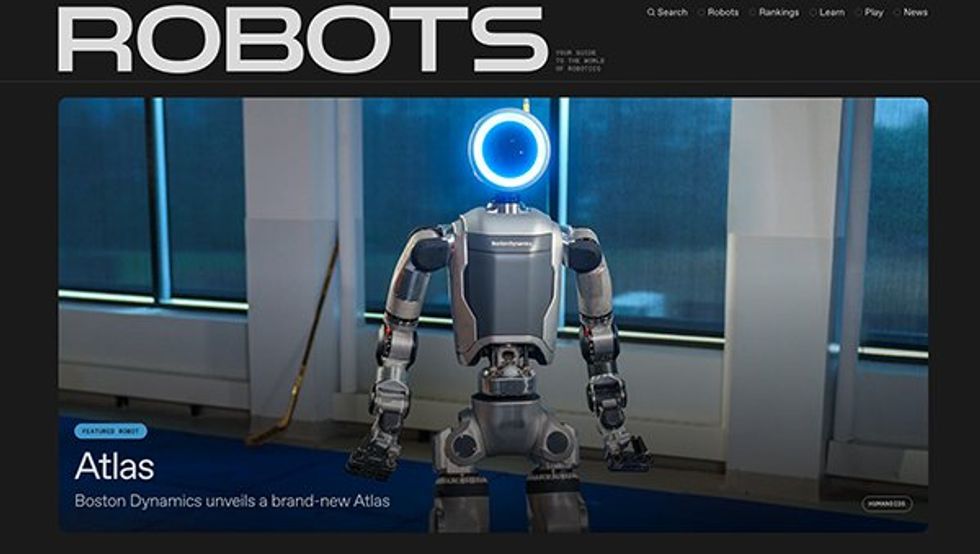

What’s a secret to getting more students to participate in an IEEE society? Give them a seat at the table so they have a say in how the organization is run.
That’s what the IEEE Robotics and Automation Society has done. Budding engineers serve on the RAS board of directors, have voting privileges, and work within technical committees.
“They have been given a voice in how the society runs because, in the end, students are among the main beneficiaries,” says Enrica Tricomi, chair of the RAS’s student activities committee. The SAC is responsible for student programs and benefits. It also makes recommendations to the society’s board about new offerings.
A Guide for Inspiring the Next Generation Roboticists

The IEEE Robotics and Automation Society isn’t focused only on boosting its student membership. It also wants to get more young people interested in pursuing a robotics career. One way the society’s volunteers try to inspire the next generation of roboticists is through IEEE Spectrum’s award-winning Robots website. The interactive guide features more than 250 real-world robots, with thousands of photos, videos, and exclusive interactives, plus news and detailed technical specifications.
The site is designed for anyone interested in robotics, including expert and beginner enthusiasts, researchers, entrepreneurs, students, STEM educators, and other teachers.
Schools and students across the globe use the site. Volunteers on the RAS steering committee suggest robots to add, and they help support new content creation on the site.
“You feel listened to and valued whenever there are official decisions to be made, because the board also wants to know the perspective of students on how to offer benefits to the RAS members, especially for young researchers, since hopefully they will be the society’s future leaders,” says Tricomi, a bioengineer who is pursuing a Ph.D. in robotics at Heidelberg University, in Germany.
The society’s approach has paid off. Since 2018, student membership has grown by more than 50 percent to 5,436. The number of society chapters at student branches has increased from 312 in 2021 to 450.
The ability to express opinions isn’t the only reason students are joining, Tricomi says. The society recently launched several programs to engage them, including career fairs, travel grants, and networking opportunities with researchers.
Giving students leadership opportunities
As SAC chair, Tricomi is a voting member of RAS’s administrative committee, which oversees the society’s operations. She says having voting privileges shows “how important it is to the society to have student representation.”
“We receive a lot of support from the highest levels of the society, specifically the society president, Aude Billard, and past president Frank Chongwoo Park,” Tricomi says. “RAS boards have been rejuvenated to engage students even more and represent their voices. The chairs of these boards—including technical activities, conference activities, and publication activities—want to know the SAC chair and cochairs’ opinion on whether the new activities are benefiting students.”
Student members now can serve on IEEE technical committees that involve robotics in the role of student representatives.
That was an initiative from Kyujin Cho, IEEE Technical Activities vice president. Tricomi says the designation benefits young engineers because they learn about ongoing research in their field and because they have direct access to researchers.
Student representatives also help organize conference workshops.
The students had a hand in creating a welcome kit for conference attendees. The initiative, led by Amy Kyungwon Han, Technical Activities associate vice president, lists each day’s activities and their location.
“I think that all of us, especially those who are younger, can actively contribute and make a difference not only for the society and for ourselves but also for our peers.”
Being engaged with the technical topic in which the students work provides them with career growth, visibility in their field, and an opportunity to share their point of view with peers, Tricomi says.
“Being young, the first time that you express your opinion in public, you always feel uncomfortable because you don’t have much experience,” she says. “This is the opposite of the message the society wants to send. We want to listen to students’ voices because they are an important part of the society.”
Tricomi herself recently became a member of the Technical Activities board.
She joined, she says, because “this is kind of a technical family by choice. And you want to be active and contribute to your family, right? I think that all of us, especially those who are younger, can actively contribute and make a difference not only for the society and for ourselves but also for our peers.”
Job fairs and travel grants
Several new initiatives have been rolled out at the society’s flagship conferences. The meetings have always included onsite events for students to network with each other and to mingle with researchers over lunch. The events give the budding engineers an opportunity to talk with leaders they normally wouldn’t meet, Tricomi says.
“It’s much appreciated, especially by very young or shy students,” she says.
Some luncheons have included sessions on career advice from leaders in academia and industry, or from startup founders—giving the students a sense of what it’s like to work for such organizations.
Conferences now include career fairs, where students can meet with hiring companies.
The society also developed a software platform that allows candidates to upload their résumé onsite. If they are a match for an open position, interviews can be held on the spot.
A variety of travel grants have been made available to students with limited resources so they can present their research papers at the society’s major conferences. More than 200 travel grants were awarded to the 2023 IEEE International Conference on Robotics and Automation, Tricomi says.
“It’s very important for them to be there, presenting their work, gaining visibility, sharing their research, and also networking,” she says.
The new IDEA (inclusion, diversity, equity, and accessibility) travel grant for underrepresented groups was established by the society’s IEEE Women in Engineering committee and its chair, Karinne Ramirez Amaro. The grant can help students who are not presenters to attend conferences. It also helps increase diversity within the robotics field, Tricomi says.
The Member Support Program is a new initiative from the RAS member activities board’s vice president, Katja Mombaur, and past vice president Stefano Stramigioli. Financial support to attend the annual International Conference on Intelligent Robots and Systems is available to members and students who have contributed to the society’s mission-related activities. The projects include organizing workshops, discussions, lectures, or networking events at conferences or sponsored events; serving on boards or committees; or writing papers that were accepted for publication by conferences or journals.
The society also gets budding engineers involved in publication activities through its Young Reviewers Program, which introduces them to best practices for peer review. Senior reviewers assign the students papers to check and oversee their work.
Personal and professional growth opportunities
Tricomi joined the society in 2021 shortly after starting her Ph.D. program at Heidelberg. Her research is in wearable assistive robotics for human augmentation or rehabilitation purposes. She holds a master’s degree in biomedical engineering from Politecnico di Torino, in Italy.
She was new to the field of robotics, so her Ph.D. advisor, IEEE Senior Member Lorenzo Masia, encouraged her to volunteer for the society. She is now transitioning to the role of SAC senior chair, and she says she is eager to collaborate with the new team to promote student and early career engagement within the robotics field.
“I’ve realized I’ve grown up a lot in the two years since I started as chair,” she says. “At the beginning, I was much shier. I really want my colleagues to experience the same personal and professional growth as I have. You learn not only technical skills but also soft skills, which are very important in your career.”
Reference: https://ift.tt/g6TqlYf
No comments:
Post a Comment